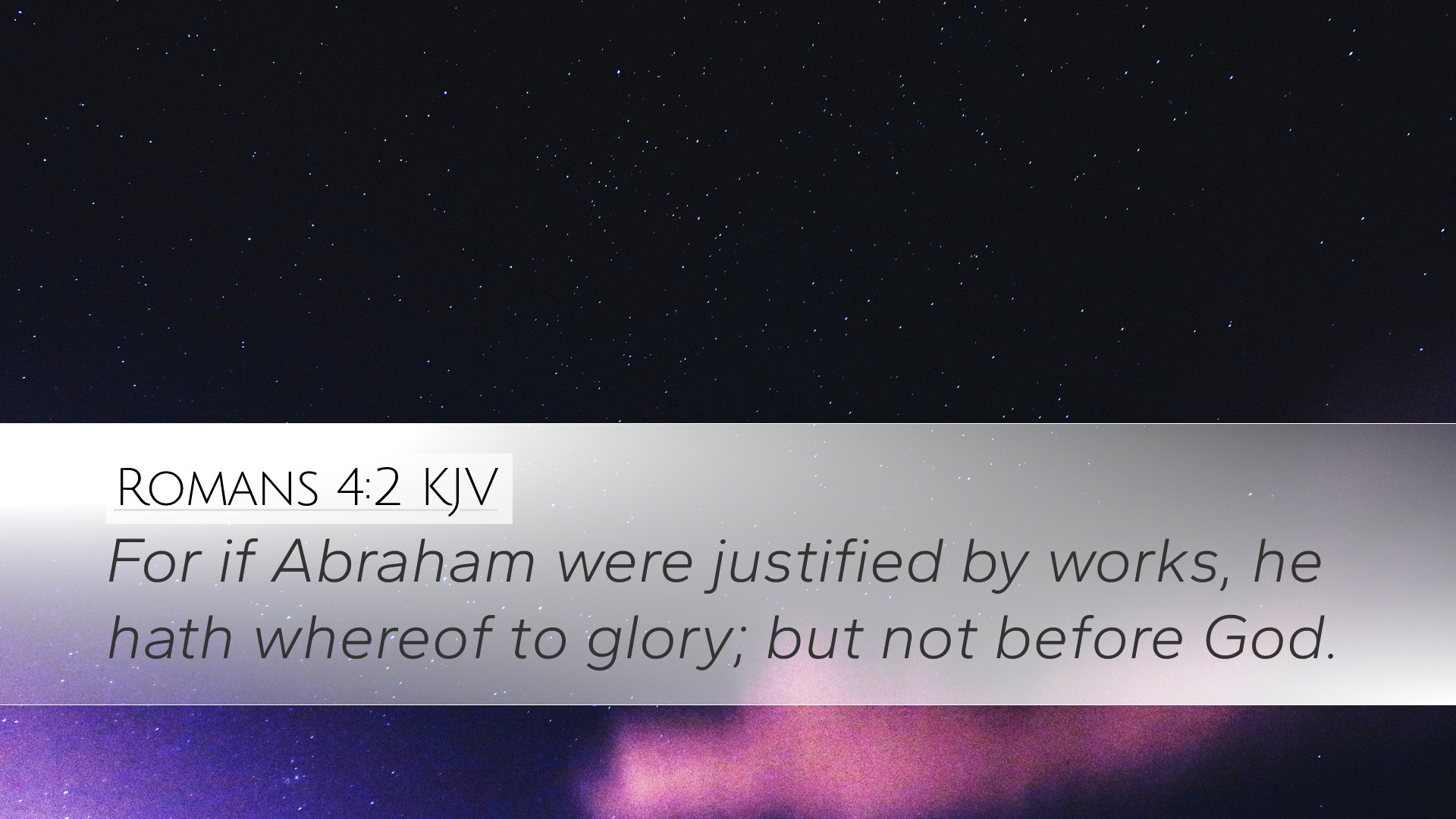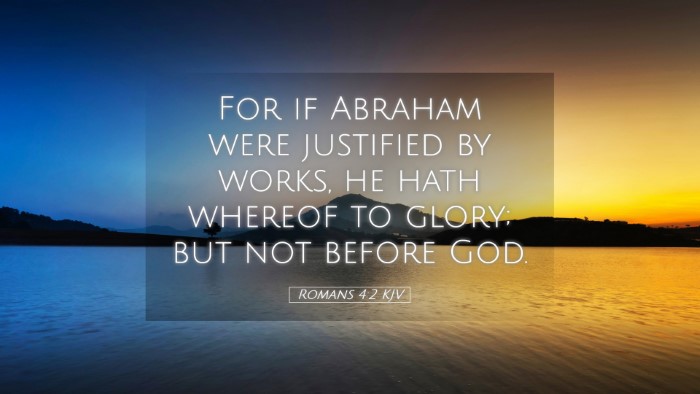Old Testament
Genesis Exodus Leviticus Numbers Deuteronomy Joshua Judges Ruth 1 Samuel 2 Samuel 1 Kings 2 Kings 1 Chronicles 2 Chronicles Ezra Nehemiah Esther Job Psalms Proverbs Ecclesiastes Song of Solomon Isaiah Jeremiah Lamentations Ezekiel Daniel Hosea Joel Amos Obadiah Jonah Micah Nahum Habakkuk Zephaniah Haggai Zechariah MalachiRomans 4:2
Romans 4:2 KJV
For if Abraham were justified by works, he hath whereof to glory; but not before God.
Romans 4:2 Bible Commentary
Commentary on Romans 4:2
Verse: "For if Abraham was justified by works, he has something to boast about, but not before God." (Romans 4:2)
Introduction
This verse is pivotal in understanding the doctrine of justification by faith as presented by the Apostle Paul. It addresses the question of human works in relation to divine justification, using the patriarch Abraham as a key example.
Commentary Insights
Matthew Henry’s Commentary
Matthew Henry emphasizes that Paul's argument centers around the nature of true justification. He notes that if Abraham, considered the father of faith, had been justified by works, he could indeed have reasons to boast. However, Henry points out that boasting before God is inconceivable, for God’s standards are beyond human merit.
Albert Barnes’ Commentary
Albert Barnes provides a detailed exegesis, stating that the mention of Abraham serves to highlight the inadequacy of human works in securing God's favor. He argues that Paul asserts Abraham’s faith, not his works, as the basis for his justification. Barnes stresses that if justification were through works, the grace of God would be rendered void, undermining the essence of salvation.
Adam Clarke’s Commentary
Adam Clarke also highlights the pivotal role of faith over works in this verse. He explains that Paul uses Abraham as a model of faith, pointing out that Abraham was declared righteous before the law was given. Clarke further elaborates that this precedence asserts that faith, rather than adherence to the law or personal achievement, is the true basis of salvation.
Theological Implications
From these interpretations, several key theological points can be drawn:
- Faith Over Works: The justification of Abraham underscores the centrality of faith. Human actions and moral conduct do not provide the requisite righteousness before God.
- The Nature of Boasting: The concept of boasting is addressed, highlighting that any merit attributed to human efforts is meaningless in the presence of divine righteousness.
- Universal Application: Abraham’s justification serves as an example for all believers, indicating that faith is accessible to everyone, not just the circumcised or law-observant.
Practical Applications
The insights derived from Romans 4:2 can lead to significant applications for modern believers, pastors, and theologians:
- Emphasizing Grace: Pastoral teachings should continually stress salvation by grace through faith, encouraging congregations to rely on God's mercy rather than personal achievements.
- Discouragement of Legalism: This passage serves as a warning against the legalistic practices that elevate works over faith, reminding Christians that salvation is a gift from God.
- Encouragement in Faith: Believers are encouraged to emulate Abraham’s faith, understanding that true righteousness comes from trusting in God’s promises.
Conclusion
Romans 4:2 serves as a crucial testimony in the Christian doctrine of justification. Drawing insights from the works of Matthew Henry, Albert Barnes, and Adam Clarke, it is evident that faith, exemplified in Abraham, is central to our relationship with God. The teachings derived from this verse continue to challenge and inspire the faith community, reminding them that it is by faith alone that they are justified before God.


